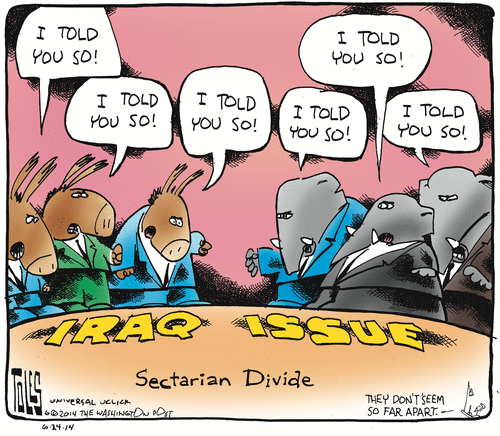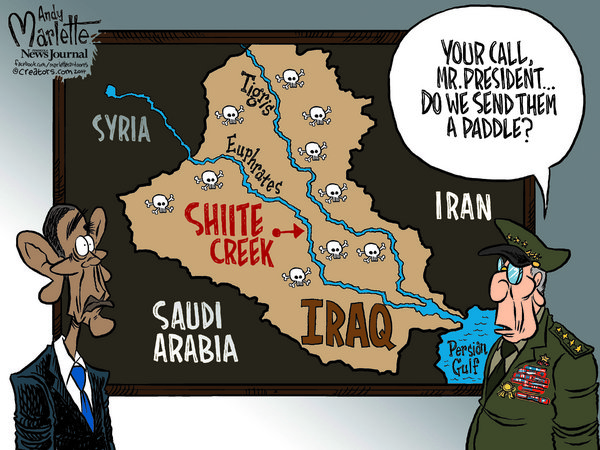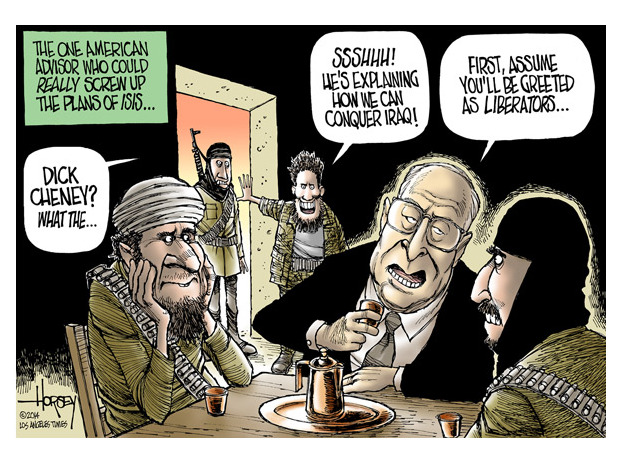Happy Independence Day, corporations! You’re way more important than women!
"Life begins at incorporation." — Justice Roberts Court. #SCOTUS #HobbyLobby
— ? Clark yearns for no Republican (@Clarknt67) June 30, 2014
Indeed, way back on June 30th, tweeter Scott Wolledge was prescient. The Supreme Court wasn’t done celebrating the religious rights of corporations over those of individuals. After ruling Hobby Lobby had the right to refuse to provide company health insurance coverage for contraception it (erroneously) believed was a form of abortion, the Supreme Court went further and ruled that corporate beliefs about ANY contraceptive trumped all women’s individual rights. From MoJo: (emphasis by the Wrongologist)
Less than a day after the United States Supreme Court issued its divisive ruling on Burwell v. Hobby Lobby, it has already begun to toss aside the supposedly narrow interpretation of the decision. On Tuesday, the Supremes ordered lower courts to rehear any cases where companies had sought to deny coverage for any type of contraception, not just the specific types Hobby Lobby was opposed to.
The Affordable Care Act had listed 20 forms of contraception that had to be covered as preventive services. But Hobby Lobby, a craft supply chain, claimed that Plan B, Ella, and two types of IUD were abortifacients that violated the owners’ religious principles. The science was against Hobby Lobby—these contraceptives do not prevent implantation of a fertilized egg and are not considered abortifacients in the medical world—but the conservative majority bought Hobby Lobby’s argument that it should be exempted from the law.
Justice Samuel Alito wrote the opinion, using many qualifiers in an attempt to limit its scope, but orders released by the court Tuesday contradict any narrow interpretation of the ruling.
The Supremes decided that non-profit organizations objecting to birth control coverage were (somehow) being crushed by the “substantial burden” of having to inform the government that they wanted an exemption. So, SCOTUS gave Wheaton College an injunction against having to fill out the required paperwork to acknowledge that they wanted to opt out. More from the NYT:
In a decision that drew an unusually fierce dissent from the three female justices, the Supreme Court sided Thursday with religiously affiliated nonprofit groups in a clash between religious freedom and women’s rights.
The decision temporarily exempts a Christian college from part of the regulations that provide contraception coverage under the Affordable Care Act.
The court’s order was brief, provisional and unsigned, but it drew a furious reaction from the three female members, Justices Sonia Sotomayor, Ruth Bader Ginsburg and Elena Kagan. The order, Justice Sotomayor wrote, was at odds with the 5-to-4 decision on Monday in Burwell v. Hobby Lobby Stores, which involved for-profit corporations.
“Those who are bound by our decisions usually believe they can take us at our word,” Justice Sotomayor wrote. “Not so today.”
The court’s action, she added, “undermines confidence in this institution.”
So, corporate personhood trumps human personhood. Worse, the religious rights of a corporation outweigh the individual rights of a woman who knows that birth control is a necessary medical expense for her. And filling out a form is too a harsh requirement for Wheaton College. The idea that what constitutes a “substantial burden” should be determined by the party alleging burden is absurd.
This is a 4th of July that doesn’t feel like most others.
We are a divided people on a day that celebrates our unity. It must change.
















